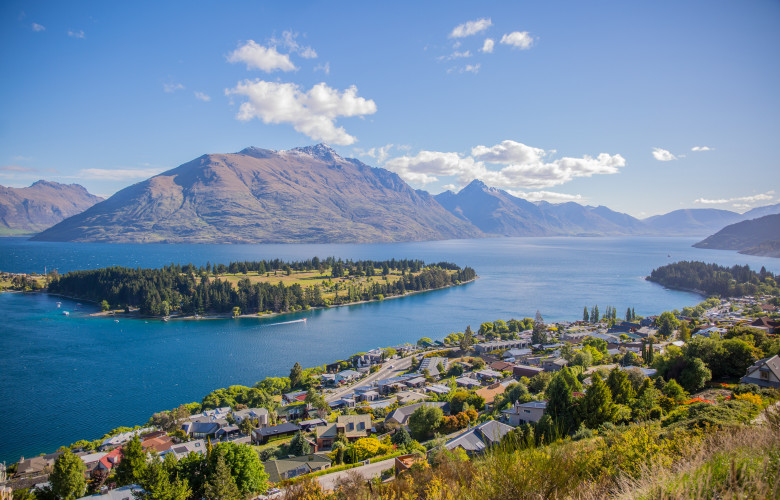New Zealand's 'foreign buyer ban' comes into effect, as questions linger about its long-term impacts
Contact
New Zealand's 'foreign buyer ban' comes into effect, as questions linger about its long-term impacts
The future of the New Zealand property market remains unclear, as the foreign buyer ban comes into full effect.
New Zealand’s foreign buyer restrictions caused waves of controversy when the New Zealand government began enacting laws. But some critics are now saying claims the bans would "destroy the market" were widely overblown, and business will carry on as normal.
The bill, which took effect on October 22, has been dubbed a "foreign buyer ban" but foreigners are still allowed to buy homes in newly built apartment buildings after the government loosened its initial plans.
According to the Real Estate Institute of New Zealand (REINZ), everyone who wants to purchase a home in New Zealand will have to complete a purchaser’s statement to ensure they have the right to buy.
You will not need consent if you are a New Zealander, Australian or Singaporean, if you have a Permanent Resident visa or have a New Zealand Resident visa and live in New Zealand. Anyone outside of these categories will either require government consent to purchase property or will be unable to buy residential property in New Zealand.
Since the ban was announced, there has been anecdotal evidence of an increase in overseas-buyer activity as foreigners rushed to get ahead of the ban.
Bas Smith, principal of Ray White Queenstown, previously told WILLIAMS MEDIA he has noticed an increase.
"I have noticed quite a rush to purchase from new clients who are learning about the imminent ban, and existing clients that had been sitting on the fence. There has been an increase in sales leading up to the deadline," he said.
Indeed, the latest CoreLogic Quarterly Property Market & Economic Update reports the overall property market outlook may be one of future uncertainty with the foreign buyer ban yet to make its full impact.
CoreLogic research analysts are suggesting the buyer ban has the potential to dent values in areas such as Queenstown and Auckland. The flipside to that risk is a general undersupply of property (particularly in Auckland), with NZ’s currently high levels of building consents needing to continue for some time yet to close that gap. In the meantime, shortages of the property will support values.
Head of Research, Nick Goodall says high values, low affordability and restrictions on credit availability have been limiting activity levels.
"There are however signs that sales volumes have found a floor and our expectation is that they’ll stay pretty steady into 2019.
"Indeed, gross lending flows to both investors and owner-occupiers have picked up in the past 3-6 months, suggesting the worst for sales activity is now behind us. A potential relaxation of the LVR (loan to value ratio) rules by the Reserve Bank later in the year (or next year) could provide some extra impetus too.”
"The report found that over the quarter, values held up around the country, with stability in Auckland and Christchurch, and with continued growth in the other main centres (especially Dunedin and Wellington), and also in many main regional towns and cities. “This controlled ‘soft landing’ for values seems set to continue. The latest figure for NZ-wide average values was $676,427 - which is 4.6 per cent ($30,049) higher than a year ago.” Goodall explains.
Bindi Norwell, chief executive of REINZ previously told WILLIAMS MEDIA “It is REINZ’s view that banning some 3 per cent of the market from purchasing homes in New Zealand is not going to have a significant impact on house prices or affordability, nor will it help young people into their first homes”.
The latest REINZ figures reveal property sales volumes are at their lowest in eight months as a result of low listings. However, 14 out of 16 regions experienced price growth when compared to the same period last year.
“Looking at the Auckland picture, we’ve seen Auckland’s median house price hover around the $850,000 mark for 18 months now – this incredibly stable market is positive for first-time buyers who are desperately saving to get a foot on the property ladder.
"However, it’s also good for investors, buyers and sellers too, as it means that everyone knows what the market is doing – there don’t tend to be too many happy people when the market is particularly volatile,” concludes Norwell.
Mark Harris, managing director of New Zealand Sotheby’s International Realty previously told WILLIAMS MEDIA he doesn’t think the effect of the ban will be too significant.
“I think certain segments will be more affected than others, for example, the high end $15+ million market and some of the investment apartment stock in Auckland.
“Having said that all foreigners will still be able to purchase apartments in complexes of more than 20 units and use them for 30 days of the year if it is managed, or not use it if it’s not managed."
For more information visit the New Zealand government website.
Related reading:
Increase in sales leading up to deadline for New Zealand foreign home buyer ban
Award-winning Marsden Estate New Zealand winery for sale
Parnell, New Zealand taking off as two apartments sold at record prices








